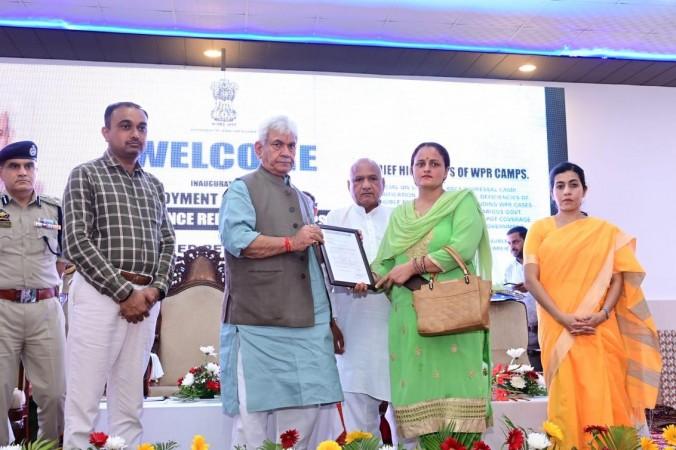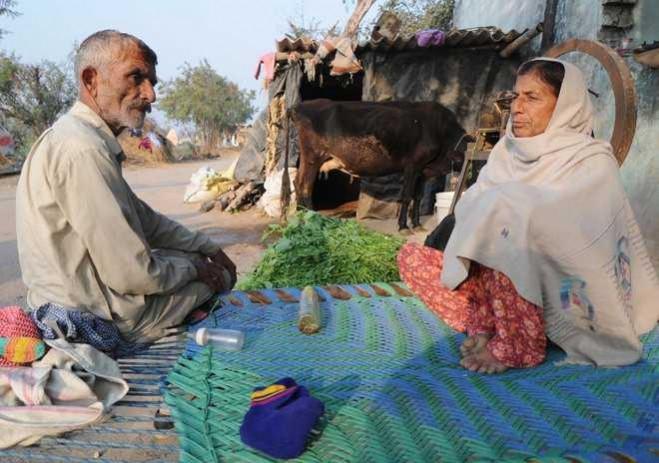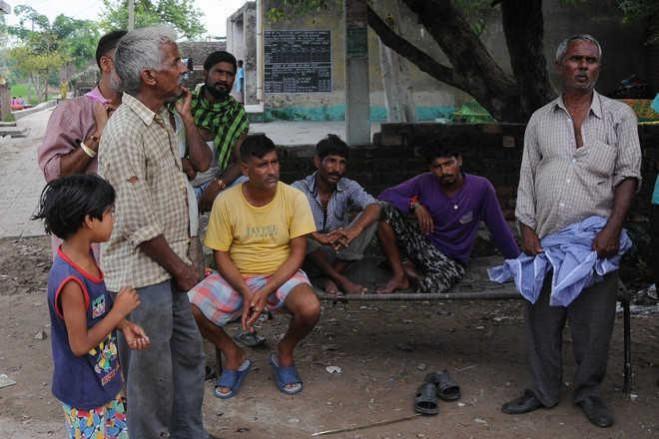Lieutenant Governor Manoj Sinha on Monday said that refugees from West Pakistan faced the worst ever slavery and inhuman treatment in independent India from August 15, 1947, to August 5, 2019.
He said that thousands and thousands of these poor refugees were liberated from slavery on August 5, 2019, when the Union Government under the leadership of Prime Minister Narendra Modi amended Article 370 and abrogated the "discriminatory" Article 35-A of the Indian Constitution.
Addressing a special camp organized for the West Pakistani refugees at the border village of Chakroi in R S Pura, he said, "Article 370 and 35A had denied political rights and other benefits to West Pakistani Refugee families and prevented their scope of progression and upward mobility".
"Prime Minister Narendra Modi provided them the rights enjoyed by other citizens of the country and they are no longer treated as refugees", he said.

The Lt Governor shared the UT Administration's resolve to extend the benefits of government schemes to their families.
"The Government is working with dedication & commitment to realize the dreams of the community. It is a fresh dawn, which offers the people limitless possibilities and a new hope to the youth. We will ensure they become architects of J&K's strong and prosperous tomorrow," added the Lt Governor.
Ownership rights of lands to West Pakistani Refugees will be ensured by the UT administration on the directions of the Central Government, the Lt Governor added.

Who are the West Pakistani refugees?
During 1947, when Hindus and Sikhs from the Sailkot district of Pakistan were migrating to India, some families had preferred to cross over to the erstwhile state J&K and took shelter as this place was nearer.
Since 1947 these refugees, the majority of them Dalits and OBCs, were struggling to get a dignified settled life but of no avail because the political class, across the state, has miserably failed to withstand pressure from separatists and other groups to solve this human issue.
Art 35-A denied rights to West Pak Refugees
It was not Article 370 but also Article 35-A of the Indian Constitution, which deprived these refugees to get rights like other citizens of J&K. Article 35-A was incorporated in the Indian Constitution on May 14, 1954, by presidential order without any debate in the Parliament.
Article 35(A) enabled the State Assembly to define 'permanent residents' and to give them special rights and privileges, as well as to restrict the rights and privileges of all citizens of India who do not fit into this definition of 'permanent resident'.

As a consequence, no one except those defined as 'permanent residents' was entitled to property rights; employment in state government; participation in Panchayat, municipalities, and legislative assembly elections; admission to government-run technical education institutions; scholarships, and other social benefits.
As per the Constitution of J&K only those people who were living in J&K before or on May 14, 1944, were entitled to the "State Subject". Article 35-A was automatically scrapped with the abrogation of Article 370.
What was State Subject?
State Subject Certificate, also called as Permanent Resident Certificate (PRC) was issued to residents of the state of Jammu and Kashmir. Only those individuals holding a certificate were entitled to own property, build a house, gain admission in professional colleges, apply for employment with the government, or vote for the Assembly poll in J&K.
Before August 5, 2019, they were even denied Domicile Certificates.
Before 2012, these refugees were issued Domicile Certificates which made these "stateless" refugees entitled to get jobs in central government departments including Defence and the Armed forces. But the same was stopped in the year 2012 without any reason.
As the Department-related Parliamentary Standing Committee on Ministry of Home Affairs in its meeting held on 11-11-2014 took serious note of the inhuman treatment being meted to these refugees, the Union Home Ministry had written a letter to the State Government No 4/4/2014-R&SO dated January 7, 2015, to issue same certificates to these refugees to help them to get employment in the Central Government jobs.
But instead of continuing with the previous process of issuing a Domicile Certificate, the previous governments directed to issue only an "Identity Certificate", which is not equal to Domicile Certificate.

















